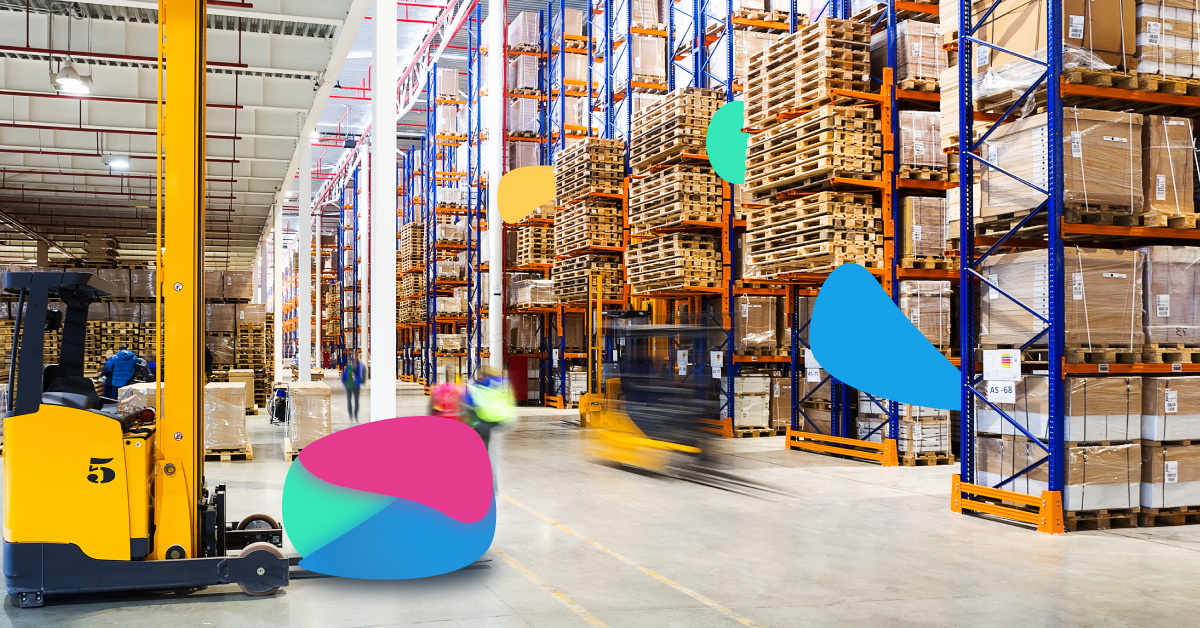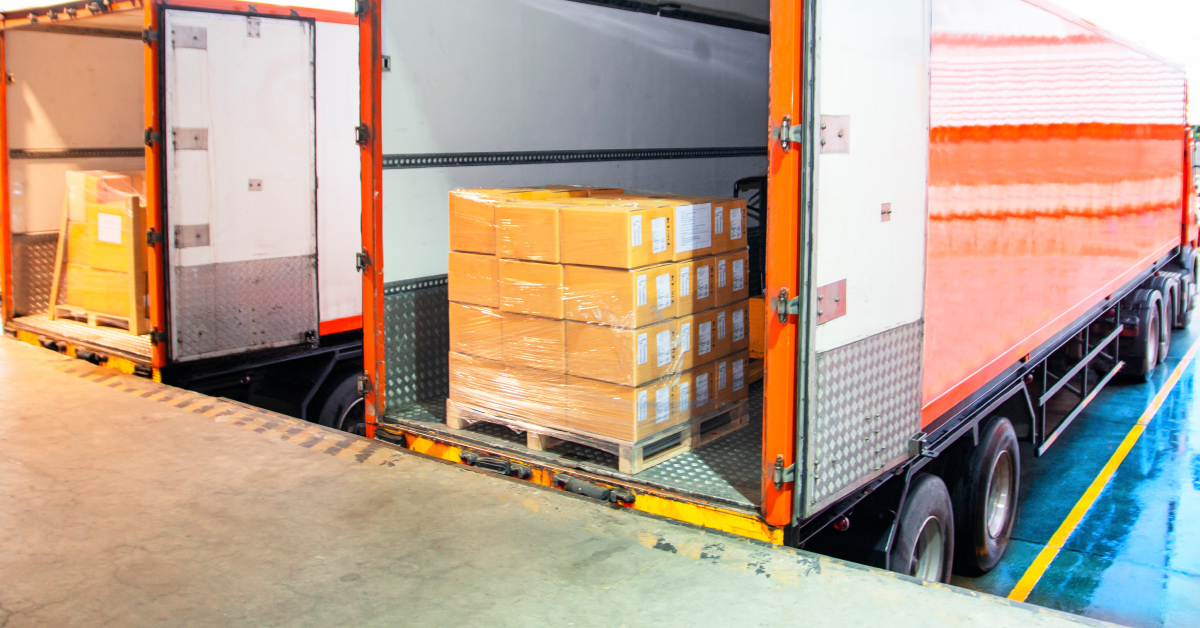Tax regulations for online merchants with storage outside Germany
Table of Content
Most retailers usually think about how they can increase their sales. However, they often oversee the fact that also reducing costs can lead to increased profits. One way to do this is to store and ship goods abroad. However, cross-border e-commerce and fulfillment are associated with certain challenges, more specifically the sales tax.

50 million: This is the number of Germans who have already purchased products online at the end of 2018 - and the number continues to rise steadily. Online trading with goods is more lucrative than ever, and more and more people are jumping on the train running at top speed.
As a retailer, however, it is not enough to set up an online shop: products have to be produced or purchased, transported to a warehouse, and stored there, finally packed and forwarded. In this process, there are not only many challenges but also many possibilities to optimize speed and costs.
In the case that products are not only shipped in Germany itself but also internationally, the idea of using a warehouse abroad is an obvious one. This can not only reduce storage and shipping costs but also delivery times.
Beyond Germany, Amazon stores in France, Italy, Poland, and the Czech Republic - and offers fulfillment centers to retailers as part of its pan-European shipping program. Despite all the euphoria about saving costs and time, the small print should never be forgotten. While tax law is still known in Germany, storage in other countries is one or the other challenge for uninformed traders.
By the way: If you only store and sell in Germany, you should still deal with current case law. Since this year, anyone offering their products on Amazon, eBay, or other online platforms has had to apply for a certificate according to § 22f UStG at the tax office and submit it to the respective platforms, otherwise, there is a risk of exclusion.
The big challenge: VAT
Anyone who is an online merchant in Germany but ships his goods internationally does not have to worry about income taxes: This includes income tax, trade tax, and, if applicable, corporation tax. Here taxation takes place exclusively in Germany.
The situation is different with sales tax. It does not matter where the dealer has his headquarters, but where the goods are shipped from. If this is done abroad, the legal regulations may deviate from German regulations. This is practical and easy to understand but is often overlooked in auditing and tax consulting and thus becomes a trap for international traders.

This affects traders who stockpile their goods in Amazon warehouses. If they are now in an Amazon warehouse outside Germany, the sales tax must be paid in the country from which the goods are dispatched at the time of sale.
This in turn presupposes that the seller is registered for sales tax in the respective foreign country and can pay his sales tax there.
Though beyond In order to send goods from a foreign warehouse, in-depth research of the local sales tax regulations, registration for this sales tax, and a process for its payment is necessary. In addition to the already higher costs compared to storage in Germany, there are also language barriers and increased costs due to the costly bookkeeping and bureaucracy.
In the end, a mathematical game makes sense here: Does storage and shipping in the Czech Republic or Poland, for example, save so many logistics costs that it is worthwhile despite the higher sales tax of 21 and 23 percent? If not, Germany remains the more sensible storage location. If so: Go abroad!
In the case of Amazon warehouses, however, this only applies to traders who ship goods worth up to EUR 100.000,- per year from warehouses in the Czech Republic or Poland to German private customers. If the value exceeds 100.000,- EUR, the German sales tax of 19% and taxation in Germany apply again.
If the merchant waives the application of the delivery threshold of EUR 100.000 he can continue to profit from the German tax of 19%. In this case, deliveries of goods from warehouses in the Czech Republic or Poland to German private customers will be taxed from the first euro according to German law.
Yet a VAT return must be filed in the Czech Republic or Poland - and the tax authorities must inform the respective countries about the turnover. In this case, German customers continue to benefit from the third-lowest VAT rate of 19% in the EU.
From Germany to the Czech Republic: Storage of goods abroad
How does storage in a warehouse in the Czech Republic, for example, actually work? The first step is of course the delivery of the goods from Germany to the Czech Republic. In this case, the trader sends the goods to the Czech Republic - to himself. This process is called intra-community transfer and is exempt from tax.
If the goods now arrive in the Czech Republic and are stored, we speak of an intra-community acquisition in the Czech Republic. Unlike the transfer, the acquisition is not tax-free. This means that the process is subject to Czech VAT (21 percent). The tax burden will still be zero as a rule, since the trader will have the same input tax deduction. Nevertheless, the Czech treasury knows that the goods have now been stored there and can be sold from there.
In a summary message, the trader finally explains the process.
Construction site financial accounting
While bureaucratic hurdles and challenges are one thing, the other is an additional expense in financial accounting. Many accountants make many mistakes here. Due to a large number of transactions at online merchants, it is simply not possible to evaluate these individually by hand and thus differentiate whether the goods were delivered from Germany, the Czech Republic, or a warehouse in another country.
The simple reference value for accounting is often the revenue values stored in the account of the online platform. It overlooks the country from which the goods are shipped - which can lead to large tax errors that ultimately become really expensive.
Digital products that are connected directly to the Amazon account, for example, can help to read out from which country the goods are going where and take the tax situation into account - such as the hellotax team.

Conclusion
Nothing in the world is free of charge: Shipping and storing goods abroad can be cheaper but is associated with challenges. Whoever gets an overview of the subject and knows how to help himself with intelligent software will quickly profit from the lower price and will not have to worry about violating current VAT laws. The effort can be worth it.
Your top priority as a trader is certainly to make your customers happy - and let's be honest: they don't care where their future coffee machine is stored as long as it grinds and as long as it arrives quickly.
If sales numbers allow it, Europe-wide storage, especially for Amazon traders, is always desirable.
 |
Guest article from hellotaxDo you want your shop to be tax conform? hellotax is your all-in-one solution for tax compliance selling. |
